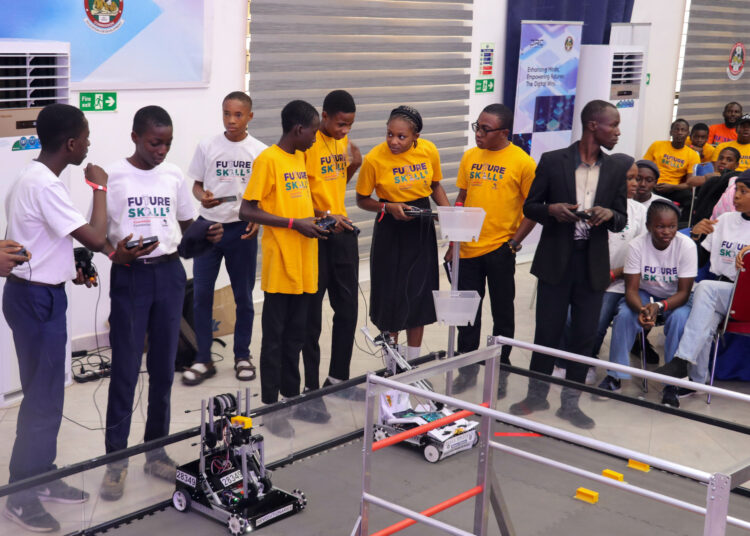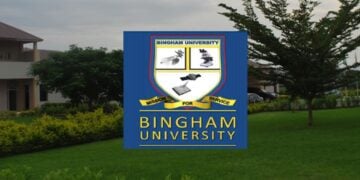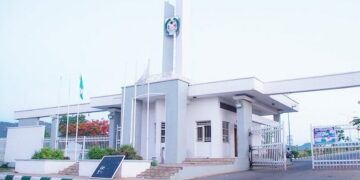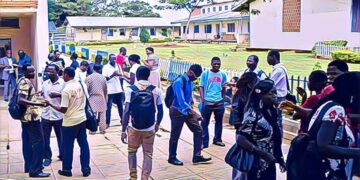Three Nigerian schools have come top in a technology-driven programme on coding and robotics project that is jointly implemented by PanAfricare and ExxonMobil Foundation in collaboration with Secondary Education Board and in Partnership with Coderina-EdTech.
The project tagged ‘Future Skills’ was designed to help young students and their teachers acquire skills in critical thinking, collaboration, communication, creativity, and competition. The sponsors believe the skills are essential for future employment and entrepreneurial opportunities.
The project is categorized into three segments: coding, basic robotics and advanced robotics. Government Secondary School in Gwarinpa came first in basic robotics scoring 270 points over others, while the Government Girls Secondary School, Dutse came best in the coding category.
Government Secondary School, Garki scored highest of the four schools that made it to the final stage of the competition in advanced robotics. They are billed to move to the next stage participating in the 2024/2025 National Robotic Challenge — Dive Deep, coming up on the 26″ of January 2025 at the National Stadium to compete for a slot to represent Nigeria internationally.
The aim is to inspire, educate, and empower young minds to embrace innovation as a powerful tool towards fostering technological development and ensuring that the nation thrives in the global economy of today and tomorrow.
The sponsors say they want to make sure that the youths are trained to be relevant in the global economy. The World Economic Forum has often talked about the future of jobs to mean the ability of people, especially the younger ones to study something that makes them relevant, not just in Nigeria, but anywhere in the world.
Some of the students who spoke during the competition hoped that the programme would help them to be able to fit in and compete with people from China, the U.S., and everywhere. “The programme is beginning to skill me with the ability to compete effectively. It has increased my critical thinking. I intend to build websites and programmes to solve some problems in my locality,” Praise Odeh from GSS Gwarinpa stated.
PanAfricare’s country director, Dr Patrick Adah, said the initiative has not only bridged the gap in digital literacy but also fostered a culture of innovation among the students. It is worthy of note that these students have started to apply the training they received to find locally thought-out solutions to problems in their communities,” he said.
The director/secretary of the FCT Secondary School Education Board, Dr Mohammed Sani Ladan, said the project is helping the participating students and Nigeria at large adapt to the 21st-century education curriculum and advanced technology. Dr Ladan stated at the event to mark the final activities of the over year training programme in Abuja, “This is one special way we can compete with the rest of the world in AI and robotics activities.”
280 students participated in the project that also provided furniture, computers, programming software and specialized robotics equipment to facilitate hands-on learning in the schools. The project was implemented in 14 Schools and conducted over 400 training sessions on Coding and Robotics, benefiting more girls than boys (150 girls and 130 boys). Also, 28 teachers were trained in the schools using international Standards to ensure the sustainability of the project.





